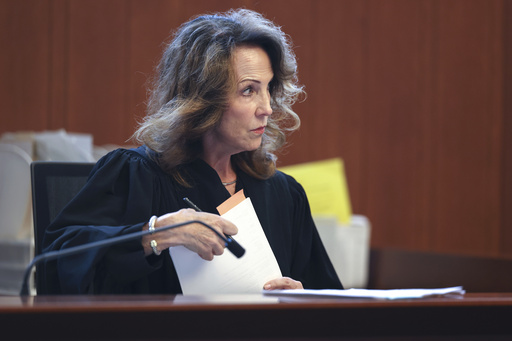BOSTON – In a significant development on Tuesday, Boston witnessed the dismissal of over 120 cases, including instances of assault on family members and law enforcement officers. This occurred due to an ongoing conflict over compensation, which has resulted in public defenders ceasing to take on new cases.
In a sparsely populated courtroom, Chief Justice Tracy-Lee Lyons of Boston Municipal Court applied the Lavallee protocol to dismiss a series of cases. According to this protocol, cases must be dismissed if a defendant has not secured legal representation within 45 days and they must be released from custody if without an attorney for seven days. While the protocol had been previously used to release suspects from custody, this marked the first occasion it was employed to dismiss cases outright.
The majority of the cases involved minor offenses such as shoplifting, drug possession, and traffic violations. However, there were also more severe cases, including allegations of domestic violence and assault on police officers. One alarming incident involved a suspect accused of striking his pregnant girlfriend and slapping her, while another case saw accusations against a man who allegedly attacked and threatened to kill the mother of his child. Additionally, there was a case involving a suspect accused of hitting a police officer and threatening to use a firearm.
Throughout the proceedings, Judge Lyons cited the Lavallee protocol multiple times, ensuring that almost all cases were dismissed after confirming that public defenders had earnestly attempted to secure legal representation for the defendants. No defendants were present in the courtroom when their cases were dismissed.
“This case will be dismissed without prejudice,” Lyons frequently stated, affirming that all associated fines and fees would be waived.
Prosecutors expressed their dissatisfaction with the case dismissals, particularly the more serious ones, but their objections were unsuccessful. James Borghesani, a spokesperson for the Suffolk County District Attorney’s office, voiced concerns about the implications for public safety. He emphasized that prosecutors and advocates are working diligently to keep victims and affected parties informed about their case statuses. Despite the frustrations, he expressed optimism for a structural resolution to these challenges.
Governor Maura Healey, when approached by reporters, acknowledged the dual nature of the issue as it impacts both public safety and due process. She stressed the importance of resolving the matter swiftly, noting the critical need for attorneys in court who are fairly compensated.
The conflict primarily stems from disagreements over attorney compensation. Public defenders, arguing that they are the lowest-paid in New England, initiated a work stoppage in late May to apply pressure for increased wages. The state agency overseeing public defenders had suggested raising pay from $65 to $73 per hour in district court and from $85 to $105 in Superior Court, as well as from $120 to $150 for murder cases, over the next two fiscal years. However, these recommendations were not included in the $60.9 billion fiscal year budget signed earlier by Governor Healey.
Shira Diner, a lecturer at Boston University School of Law and past president of the Massachusetts Association of Criminal Defense Lawyers, stated that case dismissals under the Lavallee protocols are necessary when individuals lack legal representation. She highlighted, however, that this does not address the fundamental issue of inadequate pay for bar advocates. Diner emphasized the ongoing crisis, which can only worsen without sufficient numbers of qualified lawyers to uphold constitutional rights to counsel.
The challenge of adequately compensating public defenders is a nationwide concern. Massachusetts is not alone in grappling with this issue. In New York City, legal aid lawyers are demanding improved pay and working conditions. Similarly, Wisconsin has recently passed a budget increasing public defenders’ and district attorneys’ salaries over the coming years. The state of Minnesota narrowly avoided a debilitating strike among public defenders by securing more funding, and Oregon is facing an acute shortage of court-appointed attorneys, with thousands of defendants currently lacking representation. Oregon legislators have recently approved funding to increase caseload capacity and support training for law students to assist with misdemeanor cases.


